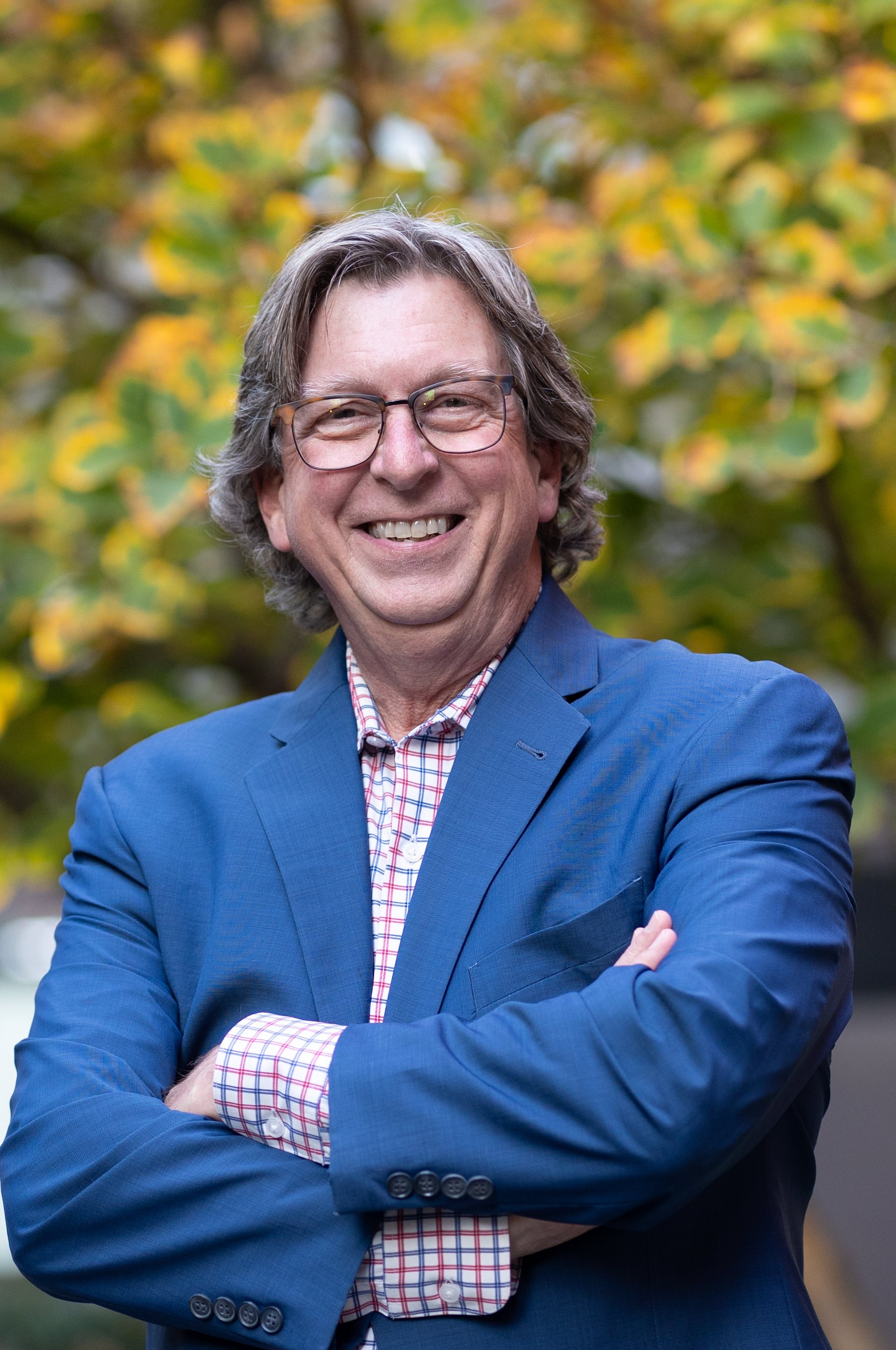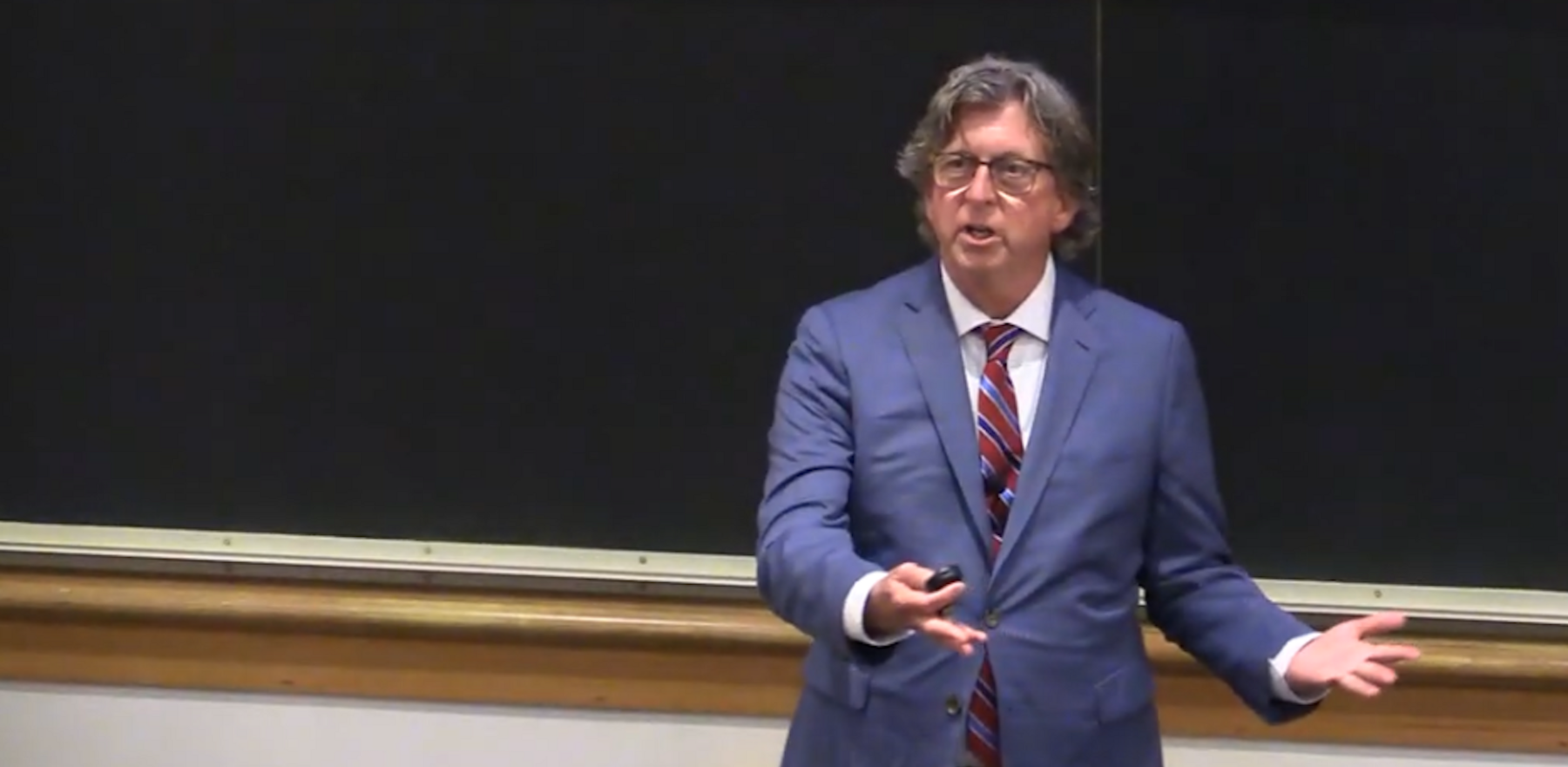The Mandela Washington Fellows gathered at Lehigh to gain insights on addressing global health care challenges from a senior official at the American Association of Colleges of Osteopathic Medicine
This year’s cohort of the Mandela Washington Fellows visiting Lehigh University heard firsthand this month a senior official at the most prestigious non-profit organization supporting colleges of osteopathic medicine in the United States.
Mark Speicher, Senior Vice President of Research, Learning & Innovation at the American Association of Colleges of Osteopathic Medicine (AACOM), discussed crises in global healthcare and the leadership challenges involved in improving population health and well-being.
Speicher, a member of Iacocca Institute Executive Fellows, delivered keynote remarks on July 3 to the Mandela Washington Fellows, a group of 25 of Africa’s brightest emerging business and community leaders participating in a six-week leadership institute at Lehigh.
“One of the things that I’ve learned from the Mandela Washington Fellows is they're doing some things now to improve their communities and the health in those communities,” Speicher said. “So a major part of our discussion focused on what assets communities like theirs have that they can use to improve health.”
Speicher’s keynote remarks can be viewed on the Global Lehigh YouTube channel, as well as below.
Before joining AACOM six years ago, Speicher was Associate Dean for Academic Affairs at the Arizona College of Osteopathic Medicine. Osteopathic medicine and its affiliated schools play a crucial role in alleviating physician and medical shortages in rural and underserved areas, which are often affected by social and economic factors.

“Many of the Mandela Washington Fellows are from areas that have experienced this problem in degrees much greater than in the United States,” he said. “It’s my hope that they can benefit from AACOM’s knowledge and what osteopathic medicine has to offer them.”
Speicher discussed gaps in national health care systems, particularly in Africa, and outlined ongoing efforts to address these shortcomings. He emphasized the critical need for more healthcare providers in several African nations, underscoring the essential investment required in both time and infrastructure.
He also addressed alternative strategies for community leaders to enhance health outcomes beyond establishing medical schools or increasing physician numbers. These strategies encompass developing walkable infrastructures and ensuring access to nutritious food, historically pivotal factors in improving health within U.S. communities.
“The Mandela Washington Fellows are the perfect audience for this conversation,” Speicher said. “Not only are they involved in programs that improve the health of their communities, but they are also the definition of compassionate leaders, and compassionate leadership plays an important role in improving community health.”
The Iacocca Institute Executive Fellows are a group of leaders throughout the nation and the world who share their insights on leadership and global developments. The Iacocca Institute regularly showcases their perspectives to the broader Iacocca community, Global Village alumni network, and Lehigh alumni interested in global activities and leadership.
